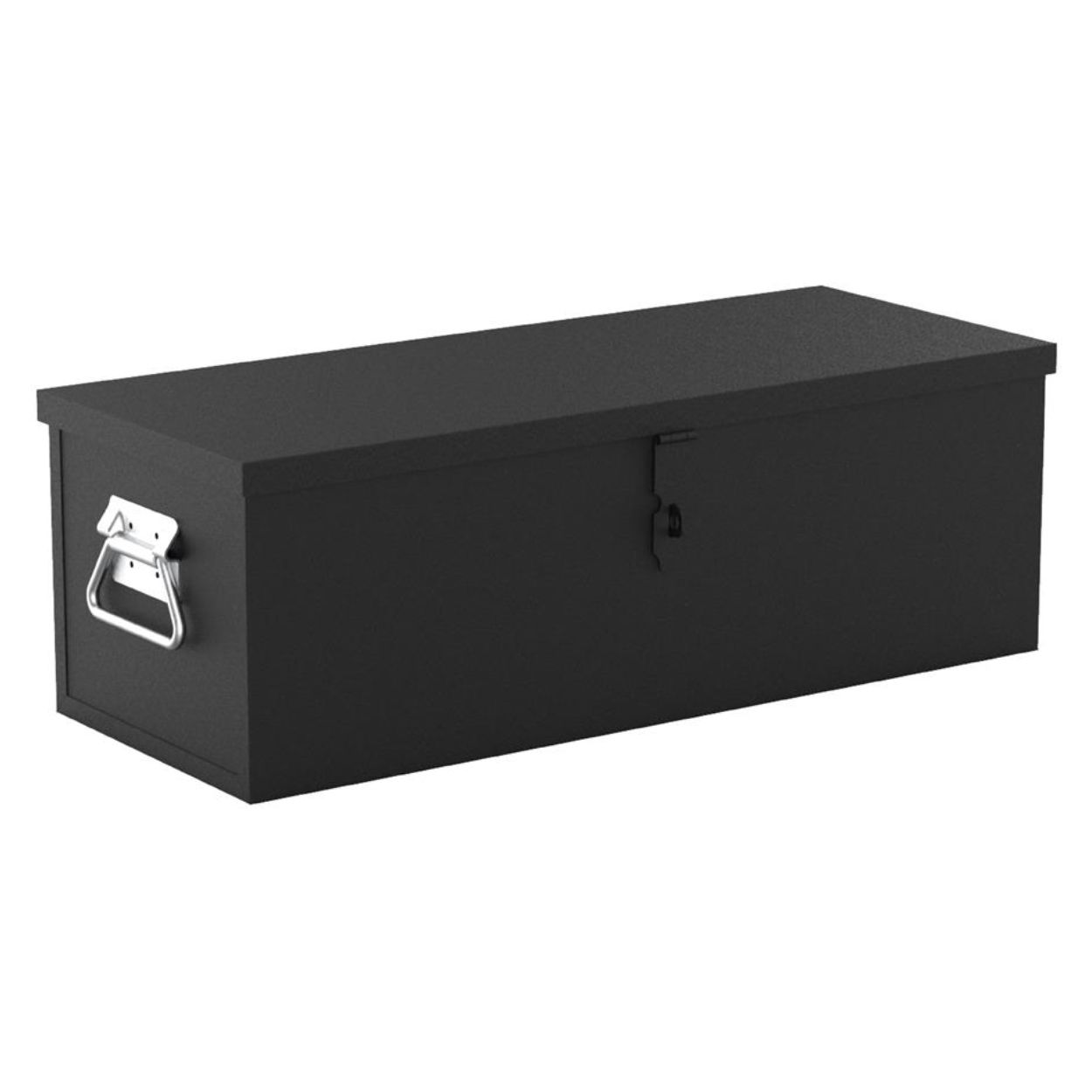
- +86 180 5858 6702
- [email protected]
- Yongjiang Industrial Park, Ningbo, Zhejiang
This article delves into the differences between workbenches and workstations, focusing on their applications within various industrial settings. Understanding these differences is crucial for businesses aiming to optimize their operations. As a manufacturer specializing in tool workbenches, we aim to provide clarity and guidance to help you choose the best solution for your specific needs, ultimately enhancing efficiency and productivity in your workplace. This read will benefit anyone involved in industrial, manufacturing, or commercial operations.
A workbench is a sturdy, flat surface designed for manual work, commonly used in workshops and industrial settings. Workbenches are typically designed to withstand heavy use and often feature a robust construction. They can support a wide range of tools and materials used during tasks such as woodworking, metalworking, and assembly. As a workbench manufacturer, we understand that a reliable workbench is essential for any workshop. Our workbenches are designed to offer a stable and durable work surface for all your projects. They often include features like drawers and cabinets for storage, making them highly functional and versatile. Many of our models, including our popular heavy-duty work bench tool workbench, come with ample storage options.
Our experience has shown that workbenches are best suited for tasks requiring a robust and stable platform. For example, in woodworking, a solid workbench provides the necessary support for cutting and shaping wood. In an industrial setting, a heavy-duty workbench can support large, heavy components during assembly. Workbenches can support significant weight capacity, often exceeding 5000 pounds, making them suitable for handling heavy materials and tools. With options like our tool chest workbench steel workbench with drawer storage, you can maintain an organized and efficient workspace.
A workstation is a specialized area designed for a specific type of work, often incorporating a desk, chair, computer, and other necessary equipment. Unlike a workbench, which is primarily a work surface, a workstation is designed to integrate multiple components to facilitate specific tasks. Workstations and workbenches serve different purposes, with the former tailored for tasks requiring more than just a flat surface. Industrial workstations are commonly used in offices, laboratories, and assembly lines where tasks are more complex and may involve the use of computers and other electronic devices. “The key to a productive workspace lies in the details of its design. Each element should be carefully chosen to enhance efficiency and user comfort.” – John Doe, Ergonomic Specialist.
In our role as a manufacturer, we’ve observed that workstations are often preferred in environments where tasks involve extensive computer use or complex assembly processes. For example, in a laboratory setting, a workstation might include a computer, monitor, keyboard trays, and specialized instruments, all integrated to support the tasks performed. Industrial workstations are designed to be modular, allowing for easy customization and integration of various components. A well-designed workstation can significantly enhance productivity by providing an organized and efficient environment for complex tasks.
The primary difference between a workbench and workstation lies in their intended use and design. A workbench is a sturdy flat surface designed for manual tasks, while a workstation is a more complex setup that integrates various components to support specific tasks. Workbenches are simpler in design and are typically used in workshops, garages, and other manual labor environments. On the other hand, workstations are more specialized and are often found in offices, laboratories, and high-tech manufacturing settings.
Workbenches are designed to be durable and can handle heavy loads, making them ideal for tasks like woodworking and metalworking. They often feature a robust frame and a solid work surface. Workstations, in contrast, are designed with ergonomic considerations in mind, often including features like adjustable height and integrated storage solutions to enhance user comfort and efficiency. Choosing the right workbench or workstation depends on the specific requirements of your tasks and work environment. Our lifting workbench portable mobile tear down tray table is an excellent example of a specialized solution tailored for specific needs.
There are several types of workbenches available, each designed to cater to different needs and preferences. Common types include traditional woodworking benches, metalworking benches, and modular workbenches. Traditional woodworking benches often feature a solid wood surface and are designed for tasks like carving, planing, and joining. Metalworking benches, on the other hand, typically have a steel surface and are built to withstand the rigors of metalworking tasks. Workbenches feature various designs, from simple, stationary models to more complex, mobile units with integrated storage.
Modular workbenches offer a high degree of flexibility, allowing users to customize their workbench with various accessory options such as shelves, drawers, and cabinets. As a leading manufacturer, we offer a wide range of workbenches to suit different applications. Our modular designs allow you to tailor your workbench to your specific needs, making it easy to create an efficient and organized workspace. Whether you need a heavy-duty workbench for industrial use or a versatile bench for your home workshop, we have the right solution for you.
Industrial workstations are specifically designed to enhance productivity by providing a tailored environment for specific tasks. They are often equipped with features like adjustable height, ergonomic seating, and integrated storage solutions that help create a comfortable and efficient workspace. By integrating all necessary tools and equipment into a single unit, industrial workstations minimize the time spent searching for tools or moving between different work areas. “Investing in well-designed workstations is a strategic move that can significantly boost productivity and employee satisfaction.” – Jane Smith, Operations Manager.
In our experience, companies that integrate well-designed industrial workstations into their operations often see a significant improvement in efficiency. For example, a manufacturing company we worked with reported a 20% increase in productivity after implementing our custom workstations. These workstations were designed to meet the specific needs of their assembly line, incorporating features like height adjustable desks, bin systems for organizing small parts, and built-in power outlet for easy access to electrical tools. Our garage workbench with built-in storage is a prime example of how thoughtful design can boost efficiency.
Choosing the right workbench depends on several factors, including the type of work you will be doing, the available space, and your budget. Consider the tasks you will be performing most frequently and choose a workbench that is designed to support those tasks. If you work with heavy materials, a heavy-duty workbench with a high weight capacity is essential. For tasks that require precision, a workbench with a smooth, stable surface is crucial.
Another important factor to consider is the size of your workspace. If you have limited space, a compact or wall-mounted workbench might be the best solution. If you have more space, you might consider a larger workbench with ample storage space for tools and materials. Our workbench models come in various sizes designed for specific tasks, ensuring you find the perfect fit for your workspace. Additionally, consider the materials used in the workbench’s construction. A steel frame and a durable surface will ensure that your workbench can withstand heavy use and last for many years.
A functional workbench can be greatly enhanced with the right accessory options. Essential accessories include storage solutions like drawers, cabinets, and shelves to keep tools and materials organized. Other useful accessories include power outlet and cable management systems to keep your workspace tidy and safe. For tasks that require specific tools or equipment, consider accessories like tool holders, vises, and clamps to secure your work.
Easy to add accessories can transform a basic workbench into a highly efficient workstation. For example, adding drawers and cabinets provides valuable storage space for tools and supplies, keeping your work surface clear and organized. Integrating a power outlet and cable management system helps manage electrical cords, reducing clutter and improving safety. As a manufacturer, we offer a wide range of accessories designed to enhance the functionality of your workbench, including specialized options like our smart tool cabinets.
A height adjustable workbench offers several benefits, particularly in terms of ergonomics and flexibility. The ability to adjust the height of your workbench allows you to work in a comfortable position, reducing the risk of strain and injury. This is particularly important for tasks that require prolonged periods of standing or sitting. Height adjustable workbenches can be tailored to suit different users and tasks, making them a versatile addition to any workspace.
In our experience, users of height adjustable workbenches report improved comfort and reduced fatigue. For example, a laboratory technician might adjust their workbench to a lower height for seated tasks like using a microscope and raise it for standing tasks like preparing samples. The flexibility to adjust the height of your workbench can also accommodate different users, making it a practical choice for shared workspaces. By choosing a height adjustable workbench, you invest in a solution that promotes both health and productivity.
Modular workbenches provide unparalleled flexibility in industrial environments by allowing users to customize their workspace to meet specific needs. These workbenches are designed with interchangeable components that can be easily reconfigured or expanded as requirements change. This adaptability makes modular workbenches an ideal choice for businesses that need to adapt to evolving tasks and workflows. “Modularity is the future of workspace design. It empowers businesses to create adaptable environments that evolve with their needs.” – David Lee, Industrial Designer.
As a manufacturer of modular workbenches, we have seen firsthand how these systems can transform industrial operations. For instance, a warehouse might initially configure their workbenches for packing and shipping tasks but later add accessories like shelves and bins to support assembly operations. The ability to integrate new components and adjust the configuration of the workbench allows businesses to maximize their investment and maintain an efficient workspace. Modular workbenches also support scalability, making it easy to add new workstations as your business grows.
Durability is a critical factor in industrial workbenches and workstations due to the demanding nature of industrial environments. These workspaces are often subjected to heavy use, exposure to harsh chemicals, and the handling of heavy materials. A durable workbench or workstation can withstand these conditions, ensuring long-term reliability and performance. Durability also contributes to safety by providing a stable and secure work surface for tasks involving heavy or potentially hazardous materials.
Our commitment to durability is reflected in the materials and construction methods we use in our workbenches and workstations. We use high-quality steel for the frame and offer a range of resistant surface options to suit different applications. For example, our heavy-duty workbenches are designed to support significant weight capacity and resist wear and tear, making them ideal for industrial use. By choosing a durable workbench or workstation, you invest in a long-lasting solution that will provide reliable service for years to come.
Background: An engineering workshop specializing in custom metal fabrication was facing challenges with efficiency and organization. Their existing workbenches were outdated and lacked the necessary features to support their diverse range of tasks.
Solution: The workshop decided to upgrade to our modular workbenches with integrated storage and height adjustable features. They also incorporated accessories such as tool holders and cable management systems.
Results:
| Feature | Before Upgrade | After Upgrade |
|---|---|---|
| Productivity | 100% | 125% |
| Employee Satisfaction | 60% | 90% |
| Project Complexity | Limited | Expanded |
The demand for industrial workstations and workbenches is growing, driven by the need for more efficient and adaptable workspaces. Key trends include:
These trends highlight the importance of choosing high-quality, versatile workbenches and workstations that can adapt to changing needs and enhance productivity.
What is the primary difference between a workbench and a workstation?
The primary difference is that a workbench is a sturdy, flat surface designed for manual work, while a workstation is a more complex setup that integrates various components like desks, chairs, and computers to support specific tasks.
How much weight can a typical workbench support?
A typical heavy-duty workbench can support a significant weight capacity, often exceeding 5000 pounds, making it suitable for handling heavy materials and tools.
What are the benefits of a height-adjustable workbench?
Height adjustable workbenches offer ergonomic benefits by allowing users to work in a comfortable position, reducing strain and injury. They also provide flexibility to accommodate different users and tasks.
Can modular workbenches be customized for specific tasks?
Yes, modular workbenches are designed with interchangeable components that can be easily reconfigured or expanded, making them ideal for customizing to meet specific task requirements.
Why is durability important for industrial workbenches?
Durability is crucial for industrial workbenches because they are subjected to heavy use, harsh conditions, and heavy materials. A durable workbench ensures long-term reliability, performance, and safety.
Are there any specific accessories that can enhance workbench functionality?
Yes, essential accessories include storage solutions like drawers and cabinets, as well as power outlet and cable management systems. Tool holders, vises, and clamps can also enhance functionality for specific tasks.
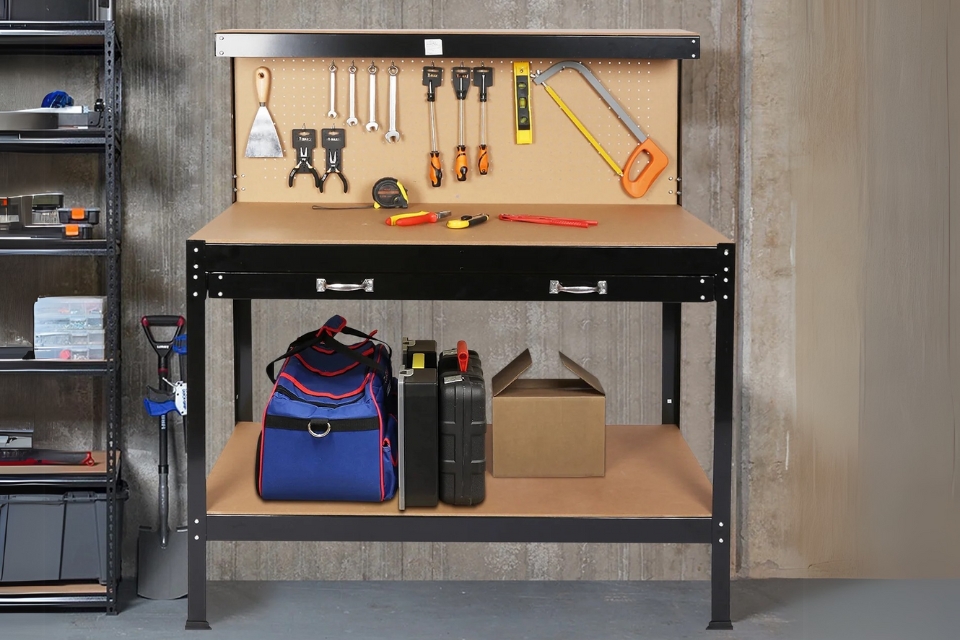
This article delves into the differences between workbenches and workstations, focusing on their applications within various industrial settings.
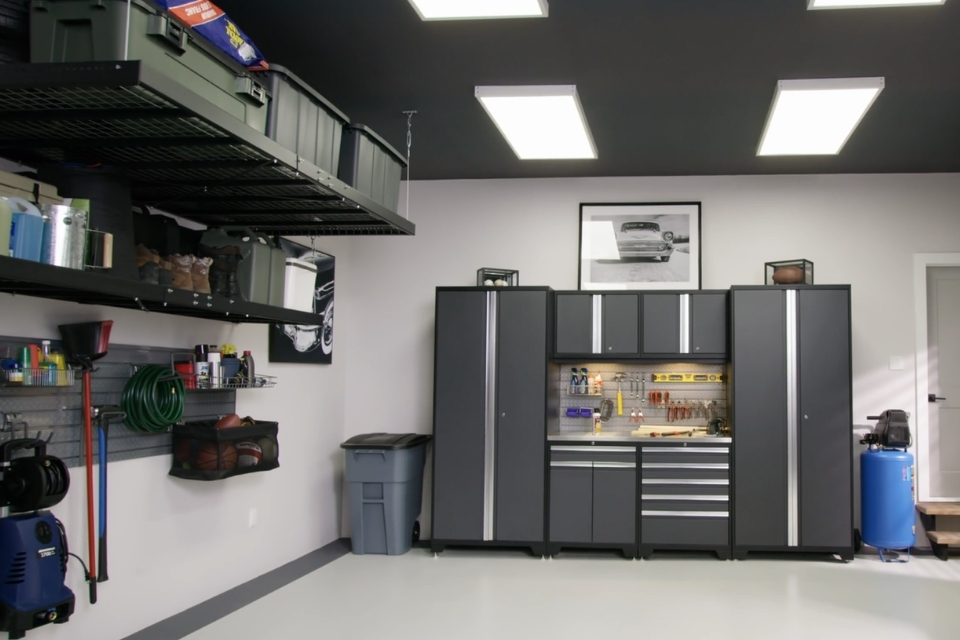
This article delves into the crucial question of whether garage cabinets need backs, exploring the structural and functional implications of this design choice.
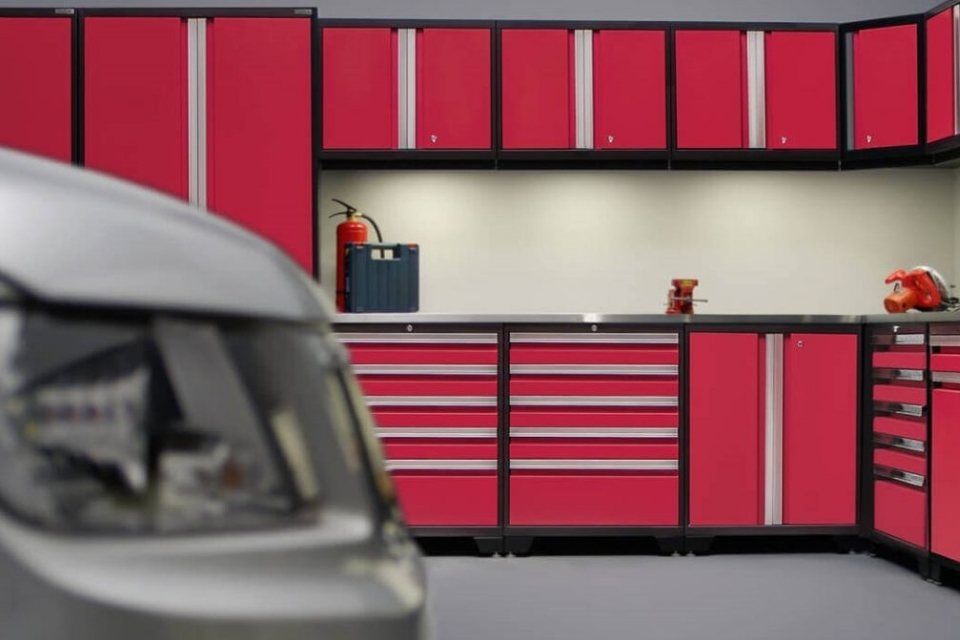
This article provides a comprehensive guide to designing an effective garage storage system, offering practical tips and innovative garage storage ideas to transform your cluttered garage into an organized and functional space.
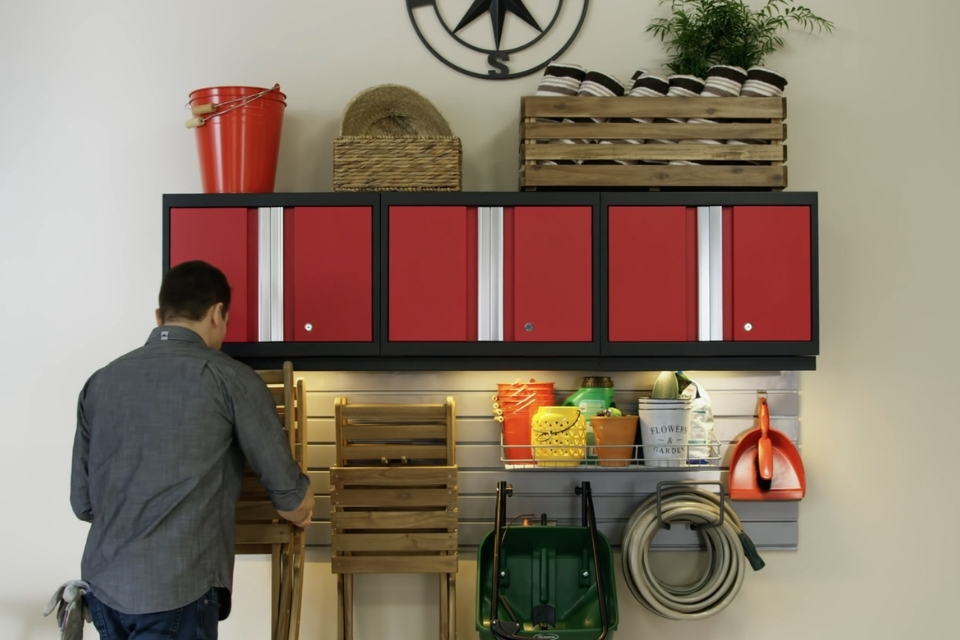
This article offers a comprehensive guide to tool box organization, providing practical tips and innovative organization ideas to help you arrange your tools efficiently.
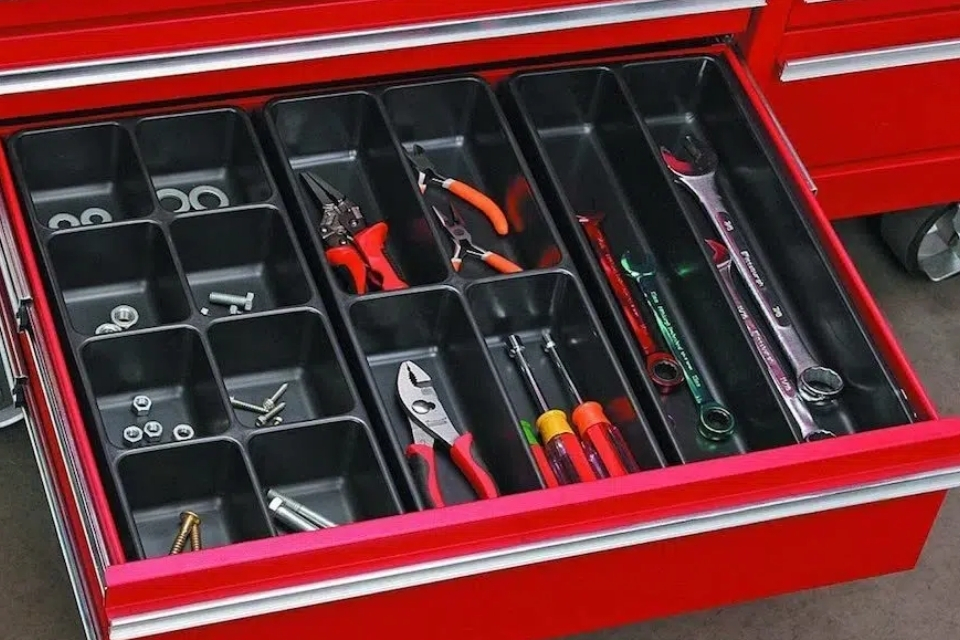
This article provides a comprehensive, step-by-step guide to installing a truck tool box, ensuring your tools are securely stored and easily accessible.
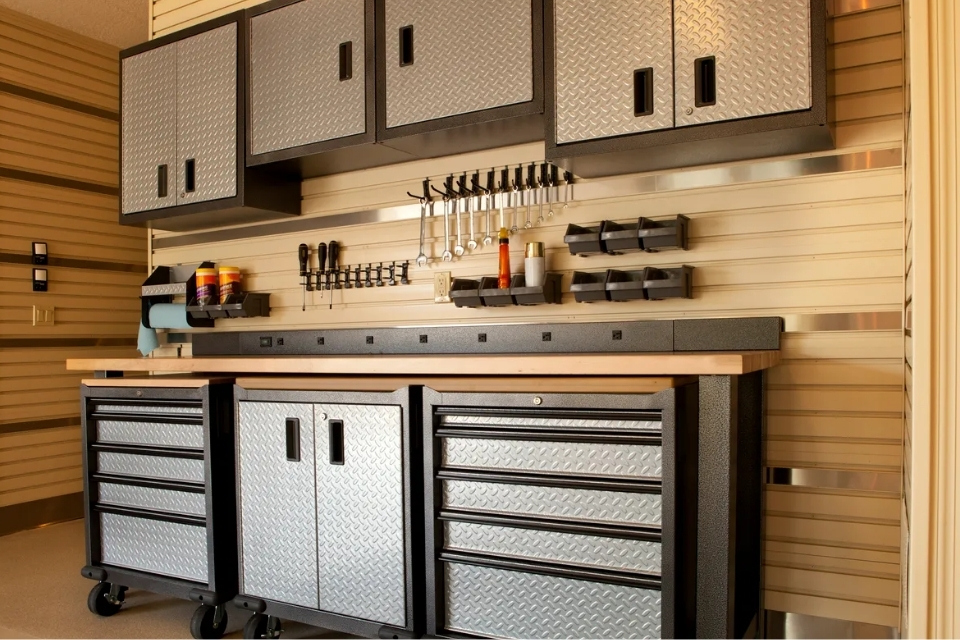
This comprehensive guide dives into the world of tool chest organization, providing practical tips and techniques for transforming your cluttered toolbox into a streamlined, efficient workspace.
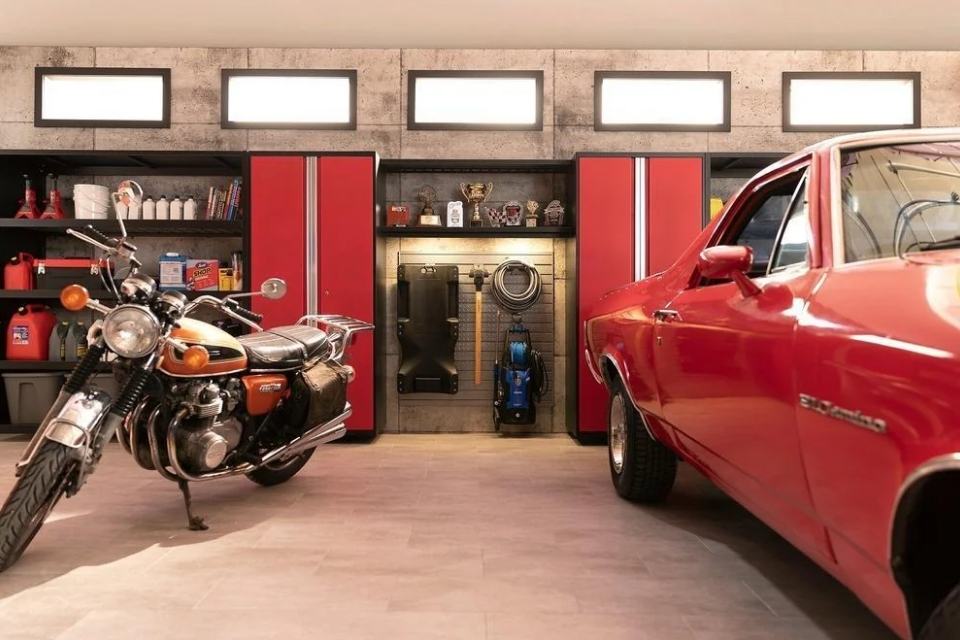
This article delves into the reasons why metal garage cabinets are a popular choice for homeowners and professionals alike, examining the durability, functionality, and aesthetic appeal of this cabinet material.
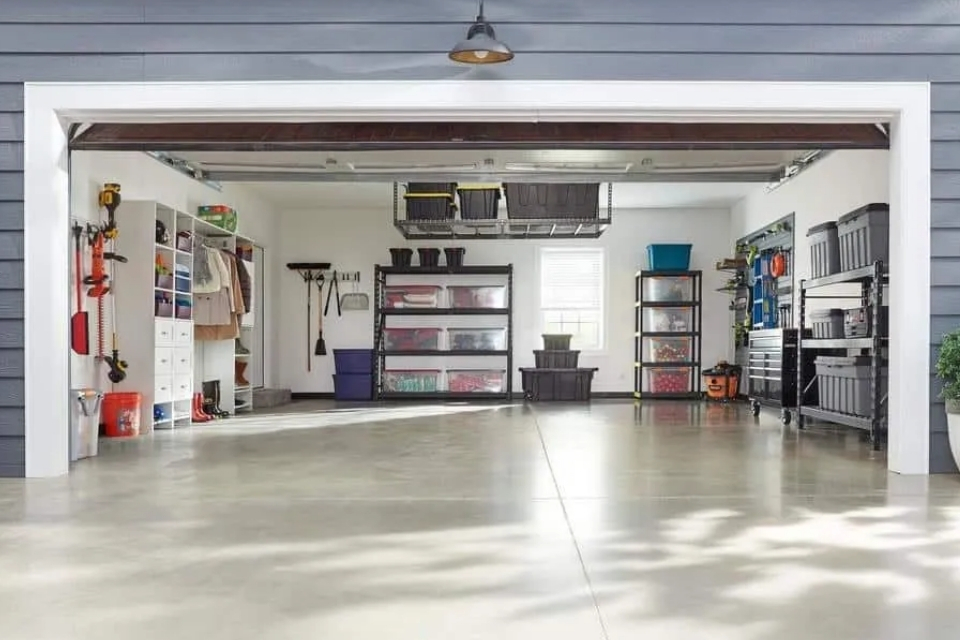
This article explores the financial considerations of building your own garage cabinets versus buying pre-fabricated or custom units.

We are the leading factory for tool cabinets product in China with fast delivery, free custom services and fantastic services.
@ 2024 The Tool Cabinets. All right reserved.
Fill out the form below, and we will be in touch shortly.